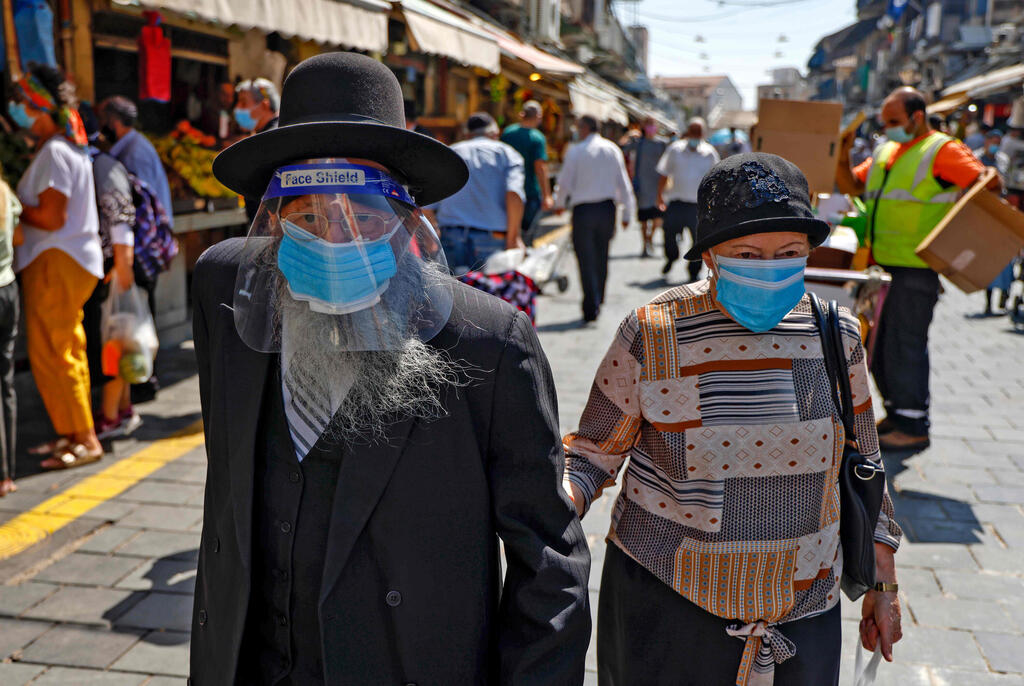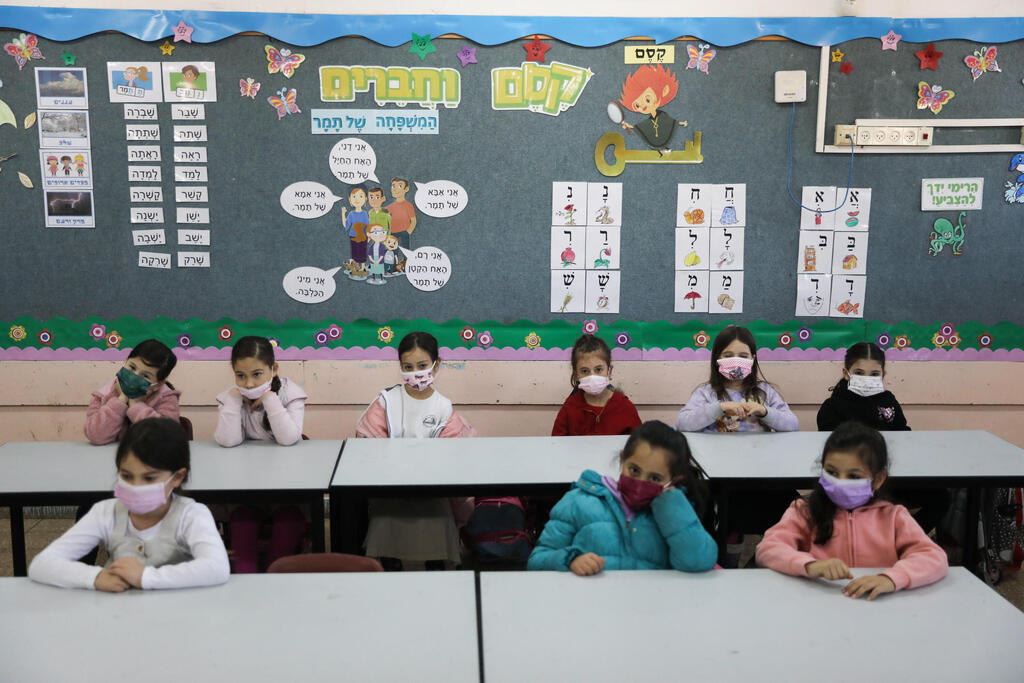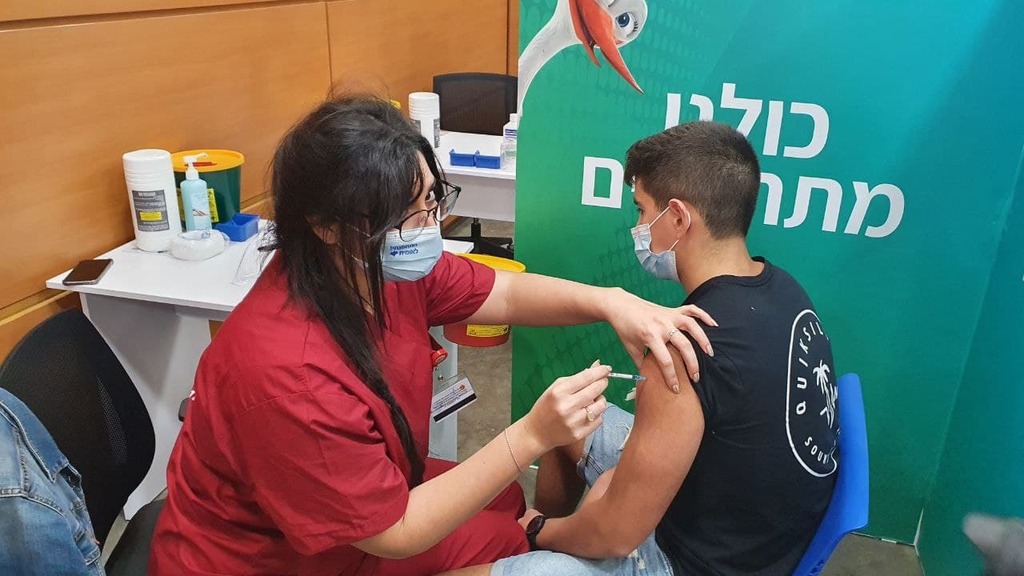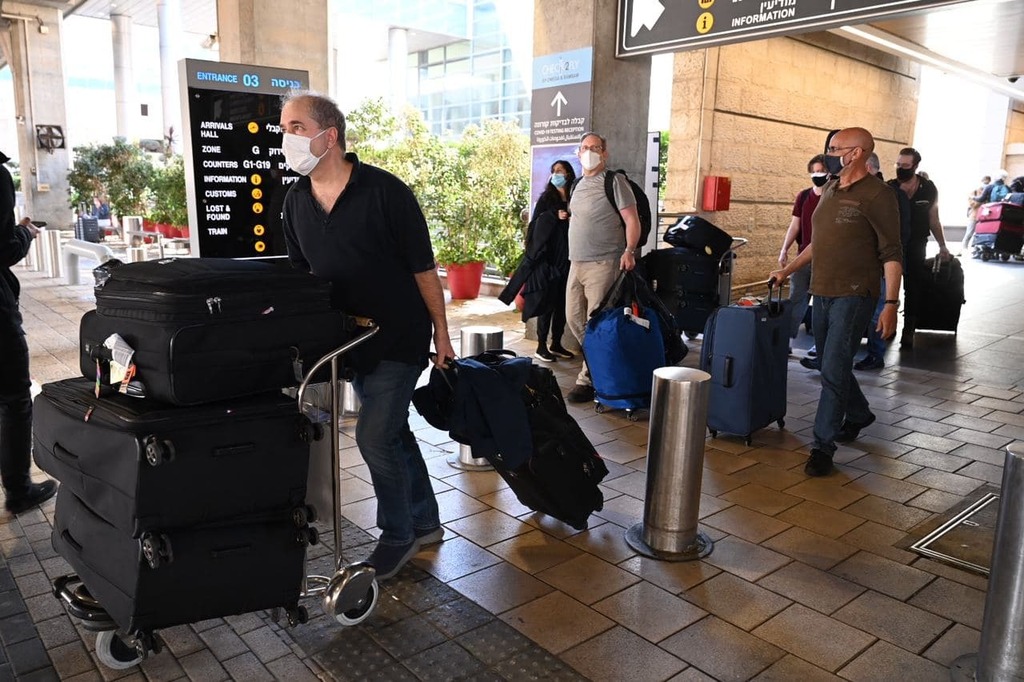Getting your Trinity Audio player ready...
As Israel's coronavirus infection rates continue to plummet despite almost the whole country having reopened, public health chief Dr. Sharon Alroy-Pries said Tuesday that from next week Israelis will not be required to wear face masks outdoors.
"According to the latest data, when it comes to outdoors - but not during public gatherings - masks can come off starting next week," she said.
5 View gallery


An Israeli couple wears face masks during a visit to Mahane Yehuda market in Jerusalem
(Photo: AFP)
"Masks will have to stay in our bags at all times since it is still mandatory to wear them indoors," Alroy-Preis added.
"We do not know if someone next to us is infected or not, vaccinated or not, and closed spaces still pose a high risk. Therefore, masks will have to stay with us," she said.
Restrictions imposed for Israel's third lockdown that began in December have almost all been lifted, but thanks to the country's high-paced vaccination campaign, the infection rate has kept falling.
"For over two weeks, 95% of Israel has been 'green' [locations with no infection hotspots]; this is a tremendous achievement," Alroy-Preis said.
"Our goal is to open [the economy] as quickly as possible, return to normalcy - but still be cautious. The virus is still here," she added.
5 View gallery


Dr. Sharon Alroy-Pries, head of public health in the Health Ministry
(Photo: Sahar Goldstein)
On Monday, ministers voted in principle to fully reopen all of Israel's schools without dividing students into smaller capsules.
The new plan will provide a wide range of testing and monitoring options across the education system in order to detect outbreaks before they spread.
When a student tests positive, the entire class and teaching staff will be tested for coronavirus before returning to their classrooms — in addition to obligatory isolation protocols.
But Alroy-Preis warned Tuesday that although low national infection rates have allowed to Health Ministry to back this new schools plan, much of the population is still unvaccinated.
"Most of the country is 'green' now, 85% of the population is immune in one way or another, but 35% of the population is still unvaccinated, among them children or almost a million citizens over 16 who have yet to receive the jab. We must be cautious," she said.
Asked whether she would recommend adolescents should receive the vaccine, Alroy-Preis said that health officials were still debating the matter.
"We are deliberating over the vaccine's efficacy and safety for children," she said.
Earlier Tuesday, the Israel Pediatric Association recommended that children between the ages of 12-15 do receive Pfizer's coronavirus vaccine.
"The Pfizer vaccine has proven its efficacy and safety, both in clinical trials and in its widespan use in Israel, including teenagers with preexisting conditions," the union said.
The association also said that teenagers play a crucial role in further spreading the disease, which causes the virus' reproductive number to increase.
Alroy-Preis that one of the biggest challenges now facing health officials was Ben-Gurion Airport and the danger of variants arriving in Israel.
"A mutation could develop in Israel, but when it arrives from abroad - the risk is far greater," she said.
"At Ben-Gurion Airport we will leave restrictions as they are regarding social distancing and mandatory testing 72 hours before boarding flights for both vaccinated and unvaccinated. Most countries do not do this, but we know that both those who have been vaccinated and who have recovered can get infected and we do not want to take a risk."




